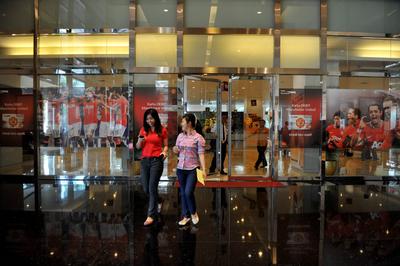Shareholders of ‘unhealthy’ bank and non-bank financial institutions can own no more than 40 per cent of a bank’s equity; for non-financial institutions this limit will be set at 30 per cent, while the ownership limit for individual investors in conventional banks will be 20 per cent, and 25 per cent in Islamic sharia banks. Implementation of the annual bank health (TKS) and good corporate governance (GCG) ratings from December 2013 will further improve banking industry regulation and correct market failures.
The new regulations will not apply to publicly listed institutions that are sound, have strong capital and are strongly recommended by their supervisory authorities. Bank Indonesia will evaluate investor soundness using its five-scale TKS and GCG ratings. Only publicly listed banks that rank in the two most healthy TKS and CGC levels and have a minimum 6 per cent Tier 1 capital will be exempt from the 40 per cent ownership cap. Investors must also be committed to the development of the Indonesian economy, to owning the bank for a minimum period fixed by Bank Indonesia, and must buy the papers issued by the bank. The new ownership regulations will apply to both domestic and foreign investors, but not to state-owned banks or Regional Development Banks.
Banks with unhealthy TKS and GCG ratings must improve their scores before 31 December 2013. If they fail to do so, they will be given a five-year transition period starting 1 January 2014, in which they must divest their stakes so as to comply with the terms of the new ownership regulation.
With this new regulation Bank Indonesia aims to disperse ownership of private banks. Until recently, there was no regulation of one-bank holding companies with separately owned non-financial subsidiaries that carried out arm’s-length transactions between their banks and commercial affiliates. As a result, business conglomerates currently own nearly all private domestic banks and conventional and sharia-based banks. This is to say that the main purpose of these banks is to mobilise funds to finance their business affiliates.
Banks and non-bank business enterprises (which comprise both non-bank financial institutions and non-financial enterprises in the trading, mining, plantation, manufacturing and real estate sectors) in one group of companies are interlocked through ownership, business and management. This is problematic because the lack of reliable information and Indonesia’s weak legal system make it difficult to implement legal lending restrictions, for example by limiting credit to bank owners, management and business associates. In a system with weak market infrastructure and few creditworthy entrepreneurs, privately owned banks lend only to people they can trust: themselves, family members and business associates. This type of lending is not desirable because it can often lead to insider trading and a principal-agent problem. In other cases, institutional shortcomings will lead to looting the bank by transferring funds overseas.
Bank Indonesia’s new regulation on required divestment of ownership creates an opportunity for foreign investors to acquire greater stakes in Indonesian banks. In line with WTO rulings in financial services, the Indonesian banking industry was deregulated in October 1988 through the so-called PAKTO reforms. These reforms allowed foreign investors to own 99 per cent of Indonesian banks’ equity shares. Greater penetration of foreign investors in the domestic banking industry happened in three main ways: by acquiring financially distressed banks taken by the Indonesian Bank Restructuring Agency during the 1997–98 financial crisis, by acquiring existing small banks, and by buying under-capitalised or weak banks with unhealthy TKS and GCG ratings.
Both the new ownership regulation and the Arsitektur Perbankan Indonesia — the framework for Indonesian banking architecture — encourage takeovers of existing small banks. Transferring ownership to foreign investors also ends companies’ concentration of asset holding in affiliated banks. As a result of increasing competition, the new re-capitalised state-owned and domestic private banks have also started recruiting better trained professionals. An additional advantage of greater market competition is to encourage banks to offer more financial services to small-scale enterprises.
Successful implementation of the TKS and GCG depends upon Indonesia improving its legal system to protect property rights and reduce transaction costs. Under weak financial supervision, banks develop risky products, many in foreign currencies. This makes financial institutions more vulnerable to short-term capital inflows, the exchange rate and interest rate developments in international markets. The Indonesian experience during the 1997–98 financial crisis shows that the social and fiscal costs of such scandals are high. The enforcement capacity of bank regulators, namely Bank Indonesia and the newly established Financial Services Authority, is also crucial. Successive bank scandals since the crisis of 1997 and the failure of Bank Century in 2008 indicate that regulators’ enforcement capacity still needs to be upgraded.
Anwar Nasution is Professor of Economics at University of Indonesia, Jakarta.

